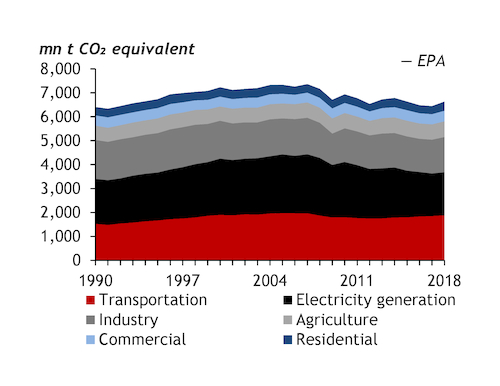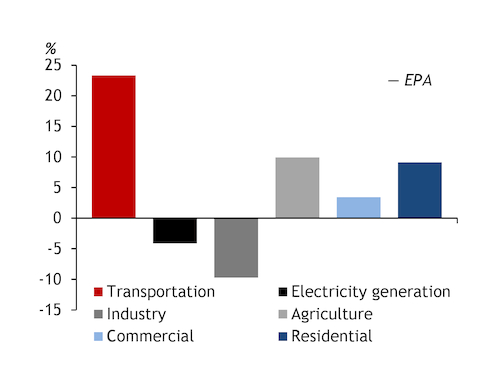As well as reversing Trump's move to pull the US out of the UN climate deal, Biden wants bigger pledges from the world's largest emitters, writes David Ivanovich
The US formally pulled out of the Paris climate accord on 4 November, but former vice-president Joe Biden is promising to convene a global climate summit within the first 100 days of his presidency, if he wins the election — as is now expected.
Calling global warming an "existential threat to humanity", Biden says he will reverse President Donald Trump's directive that formally withdrew the US, the world's second-largest emitter of greenhouse gas (GHG), from the Paris deal. Biden says he wants to lead a new diplomatic push to encourage the world's biggest emitters to make commitments beyond the Paris agreement, which is part of the UN Framework Convention on Climate Change. Chinese president Xi Jinping threw down a challenge to other countries in September when he said that China aims to reach peak CO2 emissions in 2030 and "carbon neutrality" by 2060.
The US in 2015, under former president Barack Obama, pledged to cut emissions by 26-28pc from 2005 levels by 2025 to help achieve the Paris agreement's goal of preventing global temperatures from rising by more than 2°C above pre-industrial levels. US GHG emissions in 2018 were about 10pc below 2005 levels, at just under 6.7bn t of CO2 equivalent, national environmental regulator the EPA says (see chart). In the wake of lockdowns spurred by Covid-19, US government agency the EIA projects a 10pc drop in energy-related CO2 emissions this year, but expects them to increase by 5pc next year as the economy reopens.
Democratic candidate Biden, like Obama, is expected to have to contend with a Republican-controlled Senate that is often hostile to efforts to rein in emissions. Obama tried to work around Congress by addressing climate change through regulation, particularly his signature Clean Power Plan affecting coal-fired plants. But that effort faced legal challenges, and if Biden becomes president his regulatory actions will face scrutiny from a judiciary populated by Trump appointees.
But Biden's climate policy efforts at federal level could be eclipsed within a couple of years by action at state level and in corporate boardrooms. Six Democratic-led states — Colorado, Illinois, Minnesota, New York, Pennsylvania and Washington — are considering following the lead of California and Oregon and implementing their own low-carbon standards for gasoline and diesel. And in the northeast, 12 states and the District of Columbia are poised to roll out a framework for a Transportation and Climate Initiative that would aim to lower transport sector CO2 emissions. They are contemplating a 20-25pc cut in emissions from on-road gasoline and diesel use in 2022-32. BP and Shell are supporting the initiative.
ESG does it
The US' lack of co-operation on addressing climate change under Trump may already be hurting domestic energy companies trying to do business abroad. French utility Engie — in which the French state owns a minority stake — abruptly ended talkson a long-term supply contract with US LNG developer NextDecade on 3 November. An agreement was expected to support the viability of the 27mn t/yr Rio Grande LNG export project in Texas. Engie has not explained why it ended the discussions, but it may have been driven by concerns over Texas shale producers' methane emissions.
And some leading US oil firms are stepping up climate commitments from their operations to meet investors' growing environmental, social and governance (ESG) expectations. The country's largest independent refiner, Marathon Petroleum, has set a goal to cut the GHG emissions intensity of its operations to 30pc below 2014 levels by 2030 to "meet the desired reductions or aspirations of the Paris agreement". Leading US independent producer ConocoPhillips last month pledged to achieve net carbon neutrality at its operations by 2050.




